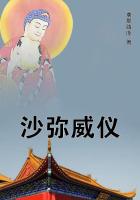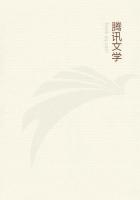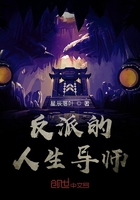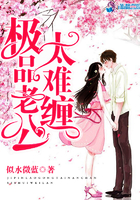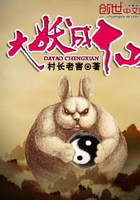'So it is with our games,' he said, 'every man plays his part not for the sake of personal advantage, but so that his side may win; and thus the citizen is taught to sink his own interests in those of the community.' I told him the Chinese did not like symphonies, and Western music was intolerable to them for this very reason. Western musicians seem to us to take a musical idea which is only worthy of a penny whistle (and would be very good indeed if played on a penny whistle!); and they sit down and make a score of it twenty yards broad, and set a hundred highly-trained and highly-paid musicians to play it. It is the contrast between the tremendous apparatus and waste of energy on one side, and the light and playful character of the business itself on the other which makes me, a Chinaman, as incapable of appreciating your complicated games as I am of appreciating the complicated symphonies of the Germans or the elaborate rules which their students make with regard to the drinking of beer. We like a man for taking his fun and not missing a joke when he finds it by chance on his way, but we cannot understand his going out of his way to prepare a joke and to make arrangements for having some fun at a certain fixed date. This is why we consider a wayside song, a tune that is heard wandering in the summer darkness, to be better than twenty concerts."
"What did that professor say?" I asked.
"He said that if I were to stay long enough in England and go to a course of concerts at the Chelsea Town Hall, I would soon learn to think differently. And that if cricket and football were introduced into China, the Chinese would soon emerge out of their backwardness and barbarism and take a high place among the enlightened nations of the world. I thought to myself as he said this that your games are no doubt an excellent substitute for drill, but if we were to submit to so complicated an organisation it would be with a purpose: in order to turn the Europeans out of China, for instance; but that organisation without a purpose would always seem to us to be stupid, and we should no more dream of organising our play than of organising a stroll in the twilight to see the Evening Star, or the chase of a butterfly in the spring. If we were to decide on drill it would be drill with a vengeance and with a definite aim; but we should not therefore and thereby destroy our play. Play cannot exist for us without fun, and for us the open air, the fields, and the meadows are like wine: if we feel inclined, we roam and jump about in them, but we should never submit to standing to attention for hours lest a ball should escape us. Besides which, we invented the foundations of all our games many thousand of years ago. We invented and played at 'Diabolo' when the Britons were painted blue and lived in the woods. The English knew how to play once, in the days of Queen Elizabeth; then they had masques and madrigals and Morris dances and music. A gentleman was ashamed if he did not speak six or seven languages, handle the sword with a deadly dexterity, play chess, and write good sonnets. Men were broken on the wheel for an idea: they were brave, cultivated, and gay; they fought, they played, and they wrote excellent verse. Now they organise games and lay claim to a special morality and to a special mission; they send out missionaries to civilise us savages; and if our people resent having an alien creed stuffed down their throats, they take our hand and burn our homes in the name of Charity, Progress, and Civilisation. They seek for one thing--gold; they preach competition, but competition for what? For this: who shall possess the most, who shall most successfully 'do' his neighbour. These ideals and aims do not tempt us. The quality of the life is to us more important than the quantity of what is done and achieved. We live, as we play, for the sake of living. I did not say this to the professors because we have a proverb that when you are in a man's country you should not speak ill of it. I say it to you because I see you have an inquiring mind, and you will feel it more insulting to be served with meaningless phrases and empty civilities than with the truth, however bitter. For those who have once looked the truth in the face cannot afterwards be put off with false semblances."
"You speak true words," I said, "but what do you like best in England?"
"The gardens," he answered, "and the little yellow flowers that are sprinkled like stars on your green grass."
"And what do you like least in England?"
"The horrible smells," he said.
"Have you no smells in China?" I asked.
"Yes," he replied, "we have natural smells, but not the smell of gas and smoke and coal which sickens me here. It is strange to me that people can find the smell of human beings disgusting and be able to stand the foul stenches of a London street. This very road along which we are now travelling (we were passing through one of the less beautiful portions of the tramway line) makes me homesick for my country. I long to see a Chinese village once more built of mud and fenced with mud, muddy-roaded and muddy-baked, with a muddy little stream to be waded across or passed by stepping on stones; with a delicate one-storeyed temple on the water-eaten bank, and green poppy fields round it; and the women in dark blue standing at the doorways, smoking their pipes; and the children, with three small budding pigtails on the head of each, clinging to them; and the river fringed with a thousand masts: the boats, the houseboats, the barges and the ships in the calm, wide estuaries, each with a pair of huge eyes painted on the front bow. And the people: the men working at their looms and whistling a happy tune out of the gladness of their hearts.
And everywhere the sense of leisure, the absence of hurry and bustle and confusion; the dignity of manners and the grace of expression and of address. And, above all, the smell of life everywhere."
"I admit," I said, "that our streets smell horribly of smoke and coal, but surely our people are clean?"
"Yes," he said, "no doubt; but you forget that to us there is nothing so intolerably nasty as the smell of a clean white man!"



